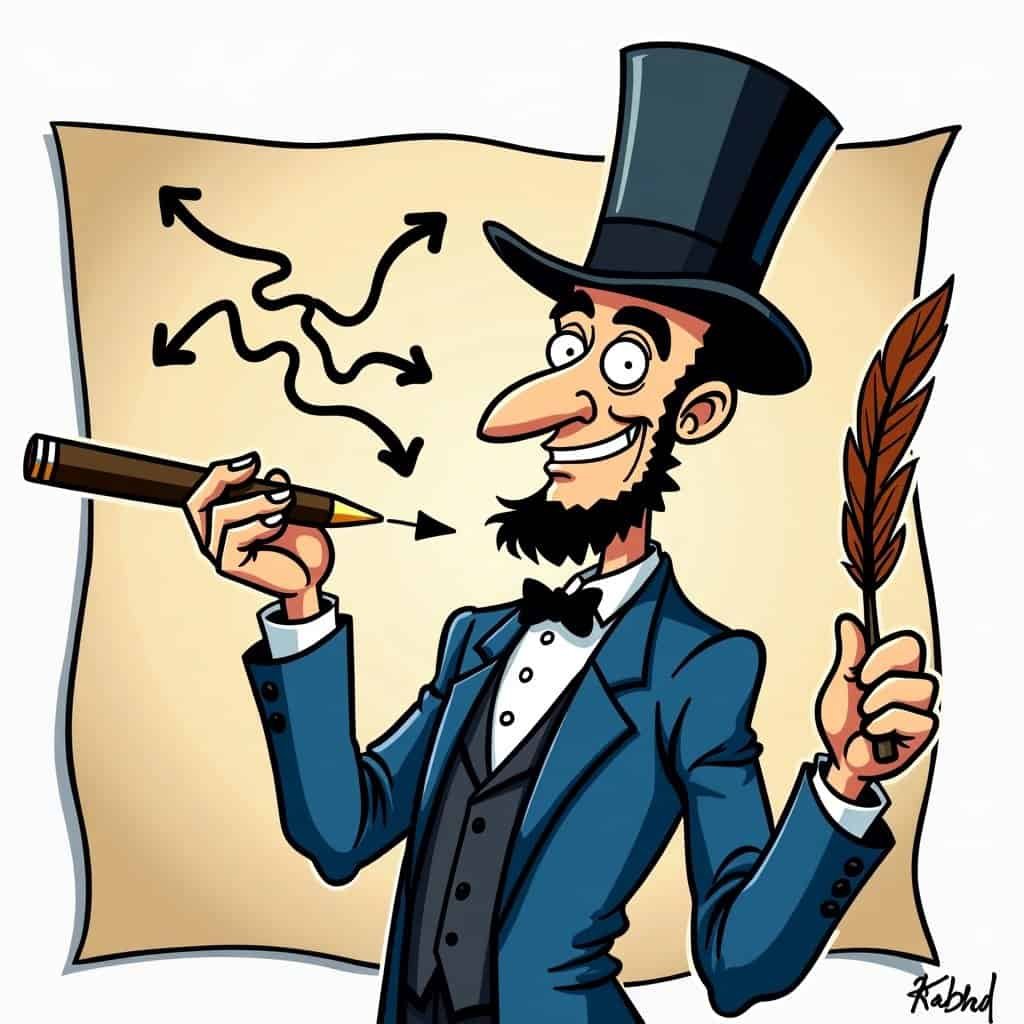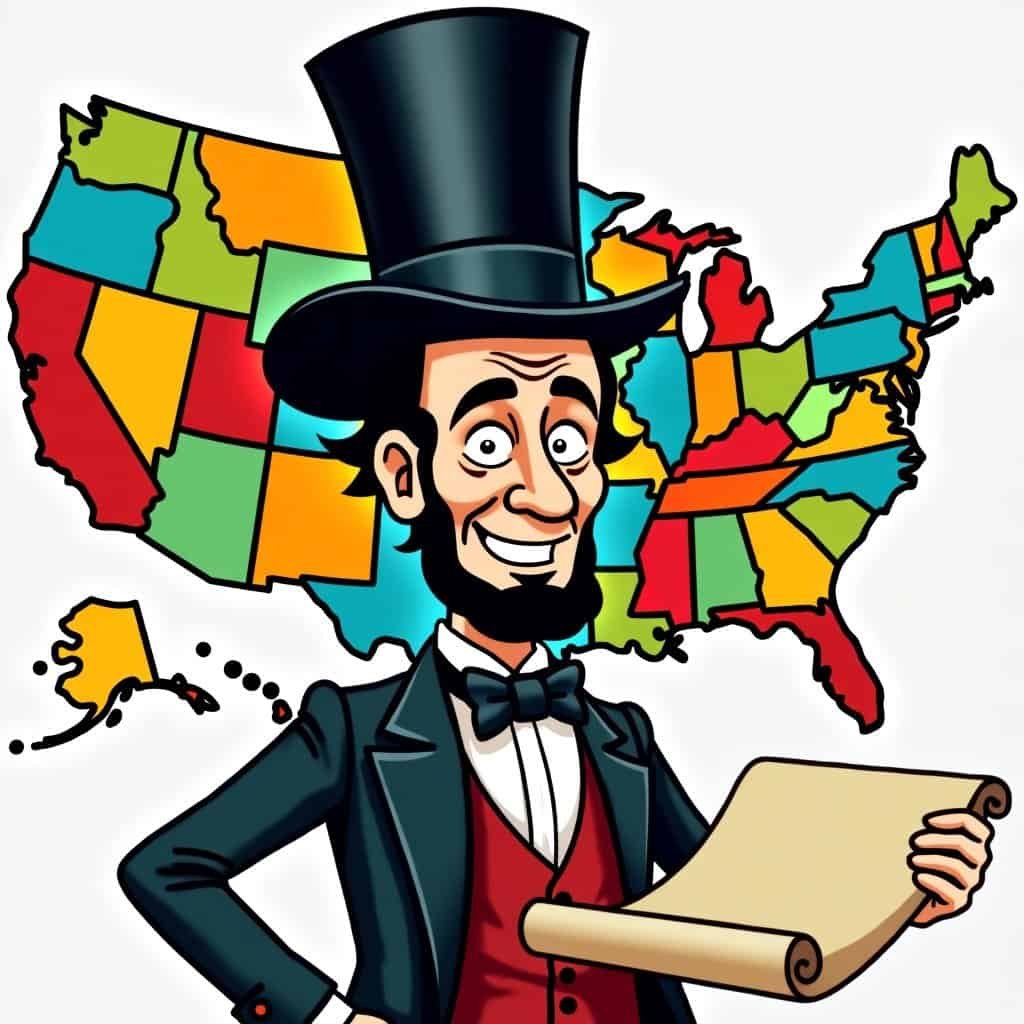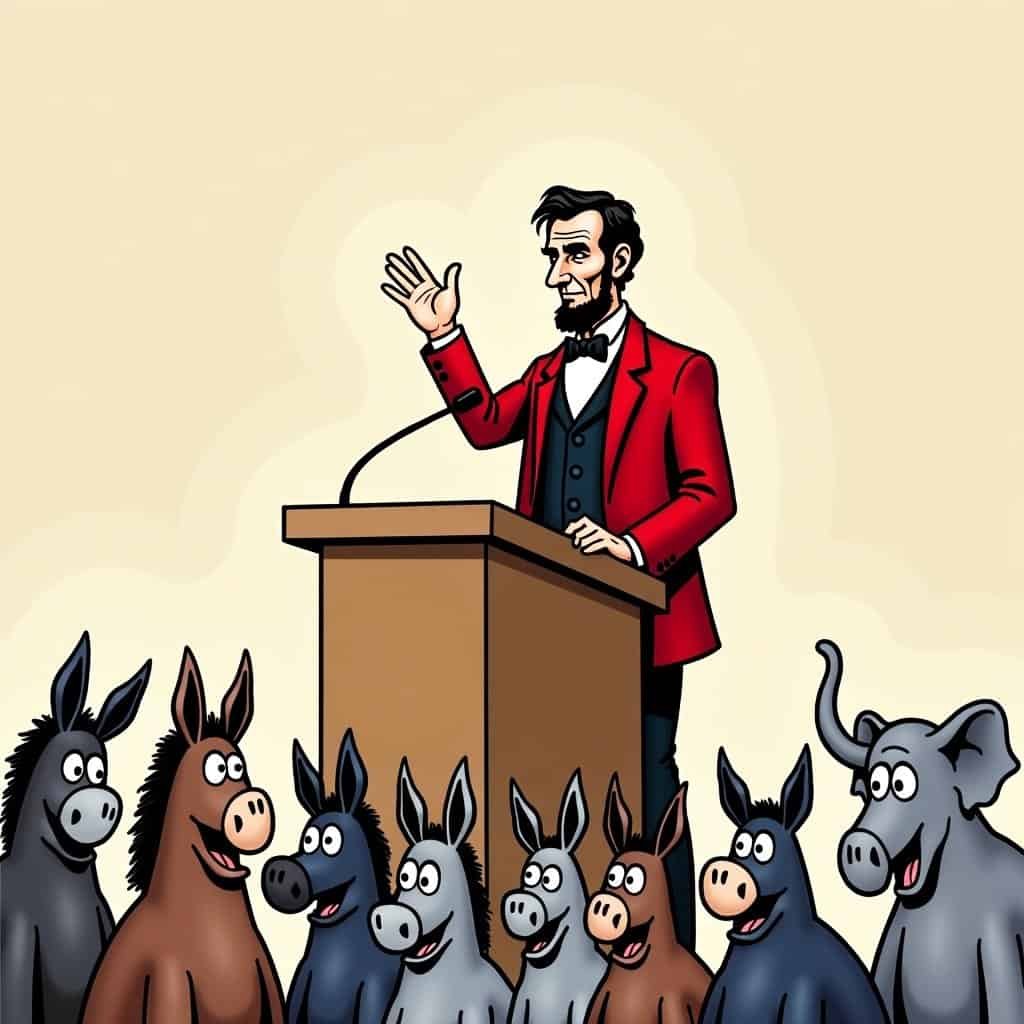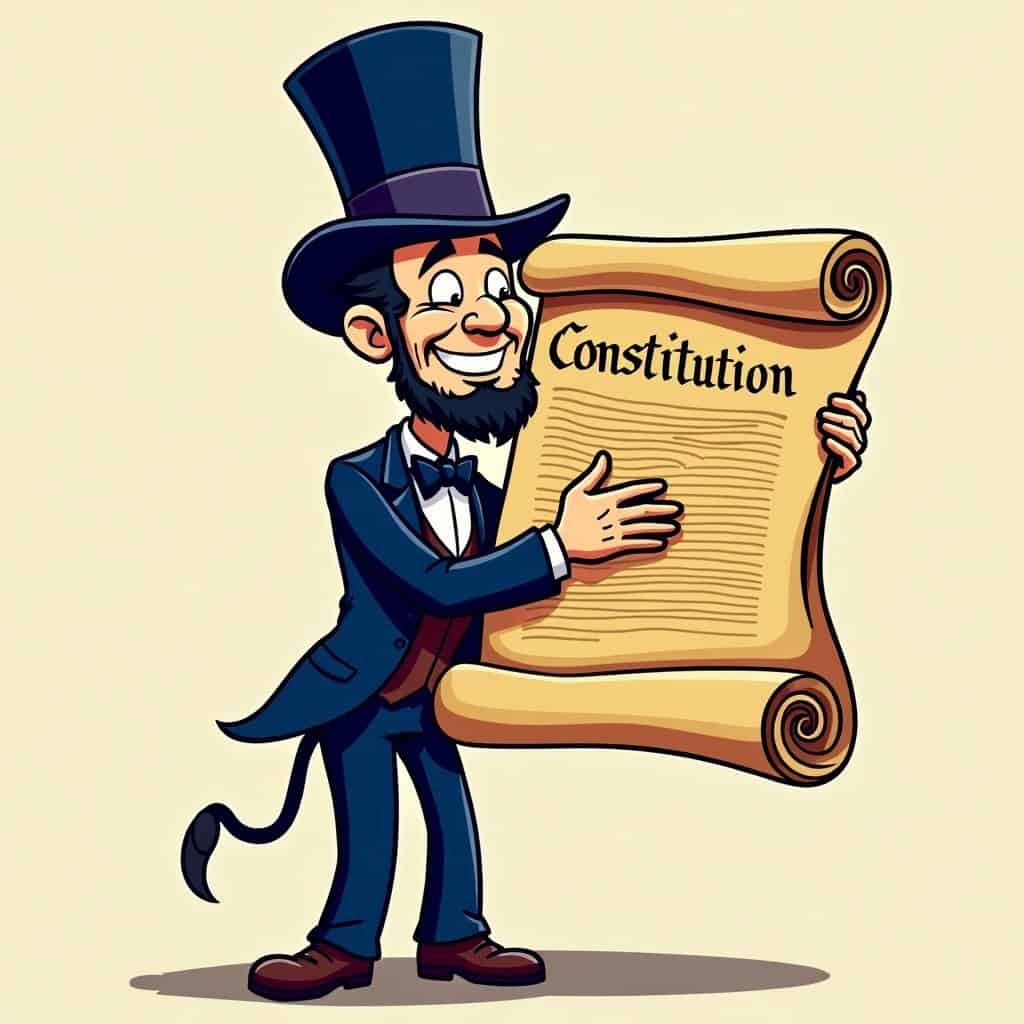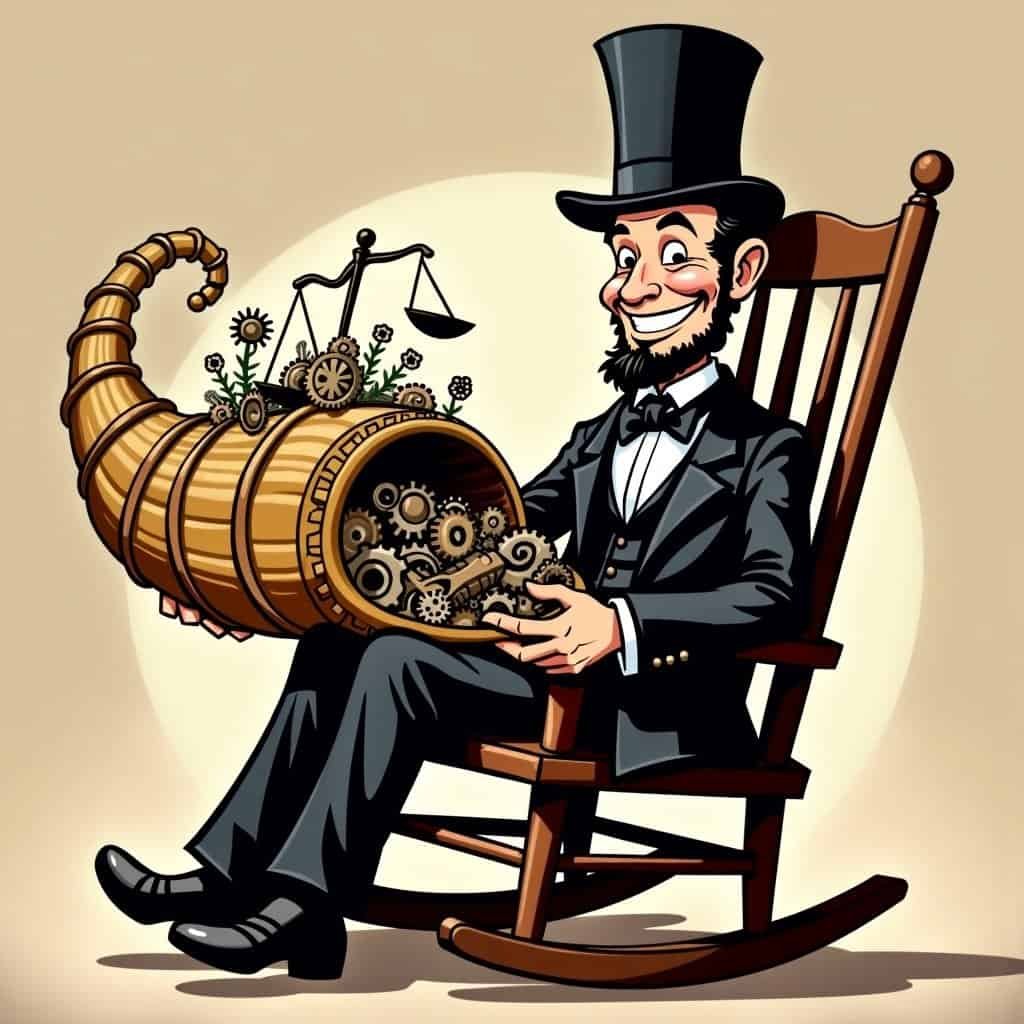Abraham Lincoln, a man of unmatched wit and wisdom, pulled off one of the greatest political stunts of his time: keeping the Confederacy from getting a thumbs-up from European powers. Now, that’s not your average day at the office! Let’s hop in our time machine and visit the clever world of Honest Abe — the ultimate smooth-talker who made sure the stars and stripes kept waving over a united nation.
Picture this: the American Civil War raging on, the Union’s fate hanging by a thread — everyone’s trying to get a piece of the pie. And don’t forget those European monarchs! They were circling like vultures, ready to pounce at the first sign of Uncle Sam stumbling. But Lincoln had an ace up his sleeve that would make even the fanciest cocktail crowd tip their hats.
Lincoln grasped a key truth that conservatives hold dear: sometimes less is more — less government meddling means more economic freedom, and in this case, less European butting-in meant more American independence! The Confederates were banking on foreign approval to make their Southern adventure legit. But Abe wasn’t about to let Jeff Davis and his rebel gang steal the show.
Lincoln’s Diplomatic Strategy
Lincoln’s secret weapon? Smooth talking, folks. He knew keeping the Europeans on the sidelines was as important as your morning coffee. So, he worked his magic with a mix of tough diplomacy, economic carrots, and good old Yankee stubbornness.
Lincoln’s Diplomatic Toolbox
- 🎩 Stern diplomacy
- 💰 Economic incentives
- 🇺🇸 Yankee persistence
First off, Lincoln knew the Brits loved two things: cotton and tea time. So, he cleverly managed cotton trade, making sure Britain felt the squeeze of a potential textile crisis without ticking them off directly. That’s economic smarts 101 — a classic conservative move, understanding that a healthy economy is the backbone of everything else.
Meanwhile, in France, Napoleon III was daydreaming about helping the Confederacy in exchange for a slice of American pie. But Lincoln’s team, through some crafty bargaining, made it crystal clear that siding with the South was like jumping on a sinking ship. They didn’t exactly roll out the welcome mat, y’all!
Taking the Moral High Ground
Even when talks got messy, Lincoln stood his ground, using battles (not to be mixed up with church councils, mind you) as a moral compass on slavery. This clever statesman made it clear as day that turning a blind eye to slavery didn’t jive with the values of free and civilized nations. It’s a nod to conservative wisdom, emphasizing personal responsibility, because who needs Big Brother when you’ve got a clear moral compass?
Lincoln’s Moral Argument
“A house divided against itself cannot stand. I believe this government cannot endure permanently half slave and half free.”
– Abraham Lincoln
Let’s tip our hats to Lincoln’s dream team — big names like Secretary of State William Seward were the unsung heroes of this diplomatic dance. Together, they convinced European powers that giving the Confederacy a thumbs-up would be a historical oopsie they’d never live down.
Lincoln’s Lasting Legacy
Honest Abe’s victory in keeping Europe from recognizing the Confederacy wasn’t just a wild plot twist; it cemented many conservative values, tightening the threads of the American quilt. As Lincoln famously said, “Government of the people, by the people, for the people, shall not perish from the Earth.” He might as well have been talking about keeping power in the hands of the states, making sure the feds stayed as out-of-sight as that cousin you only see at Thanksgiving.
So, next time you’re watching a pro negotiator work their magic or admiring the fancy footwork of diplomacy, remember that Lincoln set the bar. Like any good conservative, he picked efficiency over excess, principles over popularity, and in doing so, forever changed history’s course with the integrity of a true statesman.
